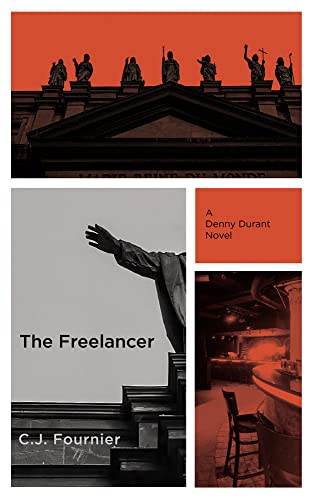The Freelancer received a 4+ star review, making it an IndieReader Approved title.
Following find an interview with author C.J. Fournier.
What is the name of the book and when was it published?
The Freelancer was published on Sept. 23, 2022
What’s the book’s first line?
It was a strange assignment, even before the overdose.
What’s the book about? Give us the “pitch”
The tagline is: Some questions lead to more questions. Other questions lead to murder.
The blurb is: When struggling journalist Denny Durant starts asking questions about an accidental overdose at a Montreal strip club, he soon discovers the overdose was no accident. Before long, Durant and the beautiful but damaged dancer Martine Perpetue are caught up in a brutal game of blackmail and revenge. Durant must connect the dots in a decades-old cold case before an out-of-control killer succeeds in silencing his questions for good.
For the pitch, I like the way one of my readers put it: ‘More Rebus than Plum, more Strike than Poirot. Highly entertaining page turner.’
What inspired you to write the book? A particular person? An event?
The book is really a love letter to Montréal, where I lived for several years and all three of my children were born. It was also a way for me to try to address two national tragedies in Canada – the ongoing crisis of Missing and Murdered Indigenous Women and the scourge of fentanyl overdose deaths – using the tools of the crime writer.
What’s the main reason someone should really read this book?
To paraphrase David Mamet, the job of fiction is to relieve the reader’s burden of consciousness. So, you should read this book if you’d like to be drawn into Denny Durant’s world and escape your own. And to travel vicariously in Montréal. Plus, it’s a good yarn.
What’s the most distinctive thing about the main character? Who-real or fictional-would you say the character reminds you of?
The genre is rife with protagonists who are cops, detectives, private investigators. It’s less often you come across one who’s a journalist. So that would be one distinction.
It’s difficult to say who the character reminds me of, but at times I see him looking like McNulty from The Wire.
When did you first decide to become an author?
I’ve been working up to it all my life.
Is this the first book you’ve written?
Yes.
What do you do for work when you’re not writing?
I’m a freelance journalist and a copywriter for the educational publisher Fig Leaf Group.
How much time do you generally spend on your writing?
If I’m knee deep in a project, anywhere from four to 12 hours a day, or more if I can see the deadline out the front window. When I’m drafting a novel, as I am now, I try to write 2,000 words a day.
What’s the best and the hardest part of being an indie?
The best part is you don’t have to wait for anyone to give you the greenlight. As Mark Dawson and James Blatch say on their podcast the Self Publishing Formula, ‘No more gatekeepers.’ The hardest part is having to learn everything from scratch. But there’s a supportive community and help seems to find you.
What’s a great piece of advice that you can share with fellow indie authors?
Arrive Late, Leave Early – or in other words, when writing a scene, begin the action at the latest possible moment, and leave at the earliest possible moment. Don’t waste the reader’s time.
Would you go traditional if a publisher came calling? If so, why?
Never say never.
Is there something in particular that motivates you (fame? fortune?)
Telling stories that accomplish the task described by David Mamet as outlined in my answer to question 5 of Part I above.
Which writer, living or dead, do you most admire?
If I’m forced to name one, Graham Greene.
Which book do you wish you could have written?
Can I say Anna Karenina without having to change my answer to the previous question?

